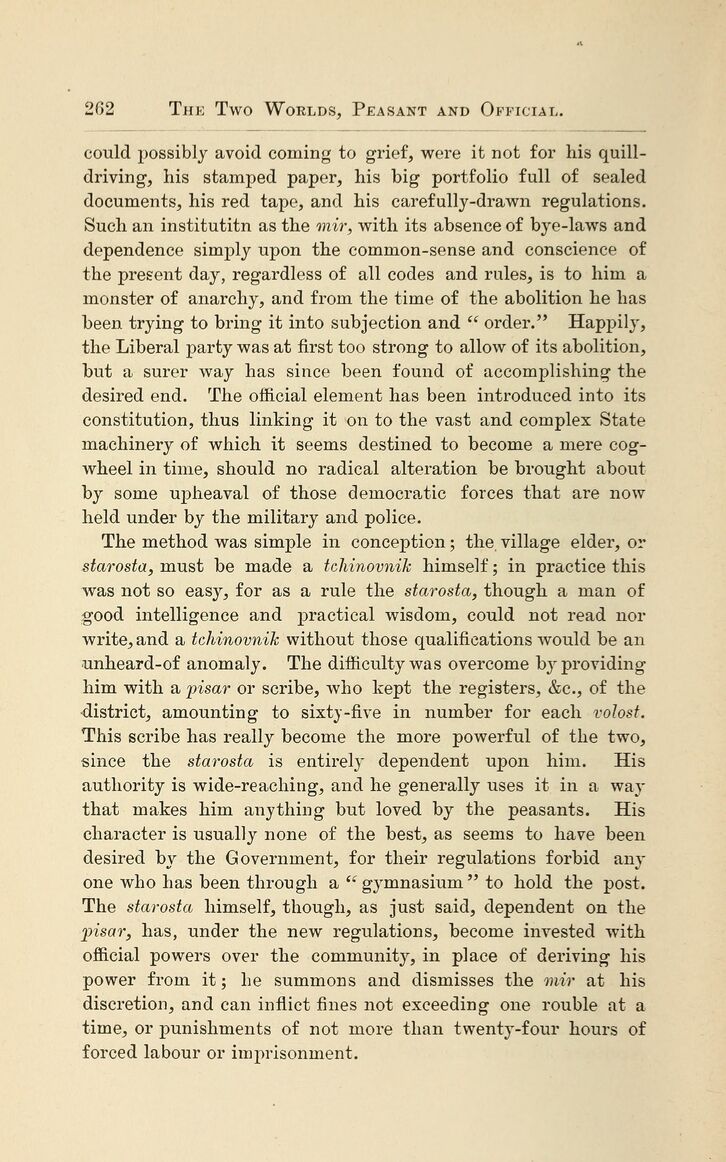
Full resolution (JPEG) - On this page / på denna sida - XVI. The two Worlds, Peasant and Official

<< prev. page << föreg. sida << >> nästa sida >> next page >>
Below is the raw OCR text
from the above scanned image.
Do you see an error? Proofread the page now!
Här nedan syns maskintolkade texten från faksimilbilden ovan.
Ser du något fel? Korrekturläs sidan nu!
This page has been proofread at least once.
(diff)
(history)
Denna sida har korrekturlästs minst en gång.
(skillnad)
(historik)
could possibly avoid coming to grief, were it not for his
quill-driving, his stamped paper, his big portfolio full of sealed
documents, his red tape, and his carefully-drawn regulations.
Such an institution as the mir, with its absence of bye-laws and
dependence simply upon the common-sense and conscience of
the present day, regardless of all codes and rules, is to him a
monster of anarchy, and from the time of the abolition he has
been trying to bring it into subjection and “order.” Happily,
the Liberal party was at first too strong to allow of its abolition,
but a surer way has since been found of accomplishing the
desired end. The official element has been introduced into its
constitution, thus linking it on to the vast and complex State
machinery of which it seems destined to become a mere
cogwheel in time, should no radical alteration be brought about
by some upheaval of those democratic forces that are now
held under by the military and police.
The method was simple in conception; the village elder, or
starosta, must be made a tchinovnik himself; in practice this
was not so easy, for as a rule the starosta, though a man of
good intelligence and practical wisdom, could not read nor
write, and a tchinovnik without those qualifications would be an
unheard-of anomaly. The difficulty was overcome by providing
him with a pisar or scribe, who kept the registers, &c., of the
district, amounting to sixty-five in number for each volost.
This scribe has really become the more powerful of the two,
since the starosta is entirely dependent upon him. His
authority is wide-reaching, and he generally uses it in a way
that makes him anything but loved by the peasants. His
character is usually none of the best, as seems to have been
desired by the Government, for their regulations forbid
anyone who has been through a “gymnasium” to hold the post.
The starosta himself, though, as just said, dependent on the
pisar, has, under the new regulations, become invested with
official powers over the community, in place of deriving his
power from it; he summons and dismisses the mir at his
discretion, and can inflict fines not exceeding one rouble at a
time, or punishments of not more than twenty-four hours of
forced labour or imprisonment.
<< prev. page << föreg. sida << >> nästa sida >> next page >>